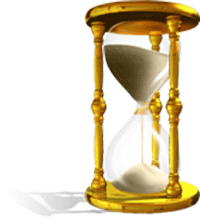Relationships can often be confused because intimate partners don't know how to deal with an avoidant emotional style
I experience my negative emotion intensely (the burden of the highly sensitive person)
“Once I learned how my adrenalin floods affected everything I did life became much more enjoyable and easier”.

Have you carefully considered your emotional style? Do you find that you avoid confrontation and difficult conversations? If so, you likely have an avoidant emotional style. Often times two people in a relationship will have different strategies to deal with conflict. Knowing how to manage each will help to improve communication and resolve hurt feelings.
I have always gone along with what other people wanted, deferred to their wishes and opinions, in order to manage my adrenalin levels. My happiness came from harmony in my environment, as conflict or even potential conflict, resulted in adrenalin floods.
If I perceived that a person may judge me, disapprove of me, be disappointed or feel let down by me, I would feel so dreadful that I would go out of my way to ensure that this did not happen.
Once I’ve had an adrenalin flood I need to process it out of my body and “return to normal”. After conflict it takes me a long while to “warm up” again – hence my husband Mike’s suggestion of the egg-timer!
I experience my negative emotion intensely (the burden of the highly sensitive person) and avoid any situation that may potentially cause an escalation of that feeling – the avoidant emotional style.
I was an obedient teenager (lest my parents be cross with me), a diligent student (lest my teacher think badly of me), helpful to all (lest people dislike me because I was selfish) and a wife that withdrew and internalized in order to avoid conflict. I am learning that my avoidant behavior – the flight response – impacts on Mike who feels punished and excluded.
Mike says, “Because you have an avoidant emotional style doesn’t mean that you have a monopoly on negative emotion”.
This is something I need to be constantly aware of and recognize when considering the impact of my behavior on others.
My appreciation of how I deal with my emotion has improved immeasurably my over all well-being. I feel energized to share with others how managing my avoidant emotional style releases adrenalin from my body making me emotionally well.
Knowing how to control your avoidant emotional style is one of the most important steps in rebuilding your relationship.
When you’re trying to fix your relationship but your emotions are out of control, you will always end up fighting. It’s time to get some professional help.
You can change this today. I can help you:
- If you have a reactive emotional style – to manage effectively your dominant emotions of irritation, frustration and anger and show you my Anger Scale exercise to help you recognise when the intensity of your emotions are rising.
- If you’re a partner of someone who has a reactive emotional style – to understand how and why their emotions are triggered and some ways to manage the impact of this behavior on your won well-being.
- Understand your emotional brain – learn how your brain effects your personal emotions.

